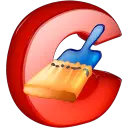How to get rid of hard drive garbage
As any computer user will know, data tends to accumulate on your PC over time. Along with obsolete files, duplicate data and many other things, it all adds up to a mountain of overlooked components that can slow down your computer if allowed to grow unchecked.
Regular maintenance is the best defense. Similar to organizing a warehouse, you need to remove the accumulated debris your PC generates from chewing on data all day long.
There are several ways to go about this, which are best accomplished through the use of three separate programs below. Each of these will restore wasted file space and generally improve the speed of your machine. It willstop your hard drive from working like crazed Minions. There is a fourth tool included for new PC owners, too.
- CCleaner, a lovely freeware gem that will help speed up your Windows PC. It removes unused files as well as optimizing the Windows Registry. It cleans up the temporary file caches of both Internet Explorer and Firefox, removes temporary Windows files, old logs and even saved crash data. All of these items can take up hundreds of megabytes of space that many users are unaware of. Most annoying is the fact that Windows does nothing to ‘clean up’ these types of files, so they tend to accumulate over time and reduce hard drive space considerably in some cases. As well, cleaning the Windows Registry (backing it up first is a must) will speed up the boot times of your computer as junk entries are no longer dragging out the Windows load process.
- Duplicate Cleaner 1.2 will scan your hard drive for duplicate files. Many times, users will often unknowingly have multiple copies of data on their systems that are NOT backups, but simply files that were duplicated by accident. Dragging and dropping folders can sometimes result in copying large numbers of files by mistake – not realizing it can mean those copies sit there unnoticed and wasting space.Be sure you know where all your important files are located on your PC. You should always know where important documents, news clippings, and images that you do NOT want deleted are stored, including the names of the folders. That way, when search results pop up, you know WHICH copy to delete. Remember, as the user, you are the one making the decision as to the files being deleted.
- Space Viewer – WinDirStat is a useful little program that gives you a visual representation of all the files on your PC, in terms of space they take up. At a glance, you can instantly see what files on your PC are taking up the most space. This can help you locate pesky space-wasters such as duplicate video files that may be hiding in unused or temporary directories. Given the vast amounts of data that are downloaded to modern computers in this age of broadband net connections, keeping an eye on your files is much easier with a tool such as WinDirStat – you can actually SEE how much space your data really takes up.
- PC Decrapifier is a program you can run if you have an OEM machine from a company such as HP (Hewlett Packard) or Acer. The name says it all: the program gets rid of all that annoying demoware and other such annoying software that comes preinstalled on many new PCs (Mac and Linux users, insert laughter here). PC Decrapifier removes all the demo applications that came with your new PC and that most users are unlikely to ever use. Their removal increases the valuable hard drive space that you had paid for in the new PC in the first place, and until now, couldn’t use. Simple, and very useful.
Using these tools will speed up your PC and rid you of space-wasting file data, leaving room for things you really want to use. It is amazing to see how much junk can be cleaned from a PC’s hard drive in just a few minutes, especially if it has never been done before. Keeping an eye on junk data and running sweeps regularly will ensure your PC is a lean, mean data storage machine. You’ll both be happier with the results.

